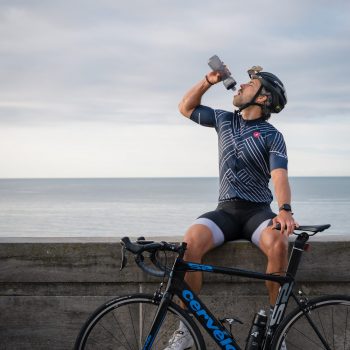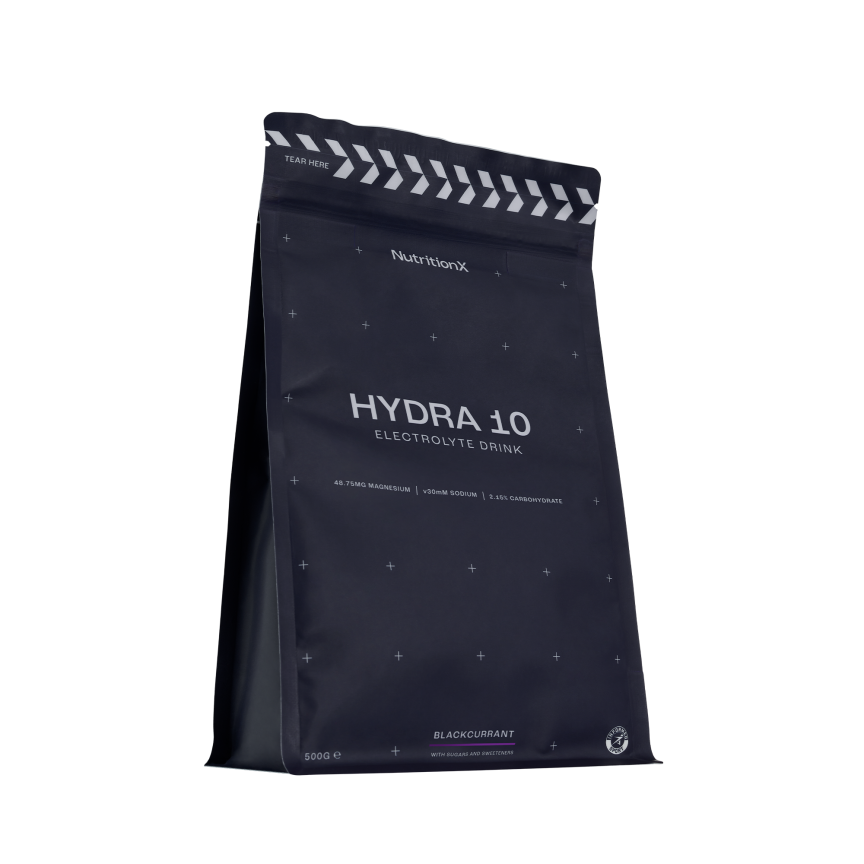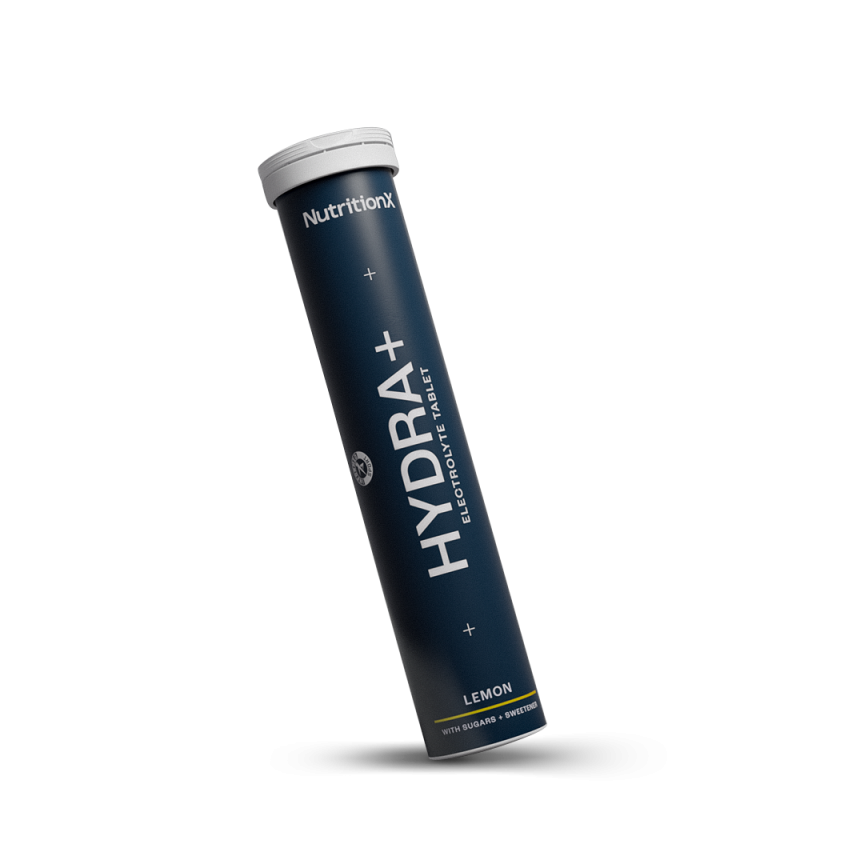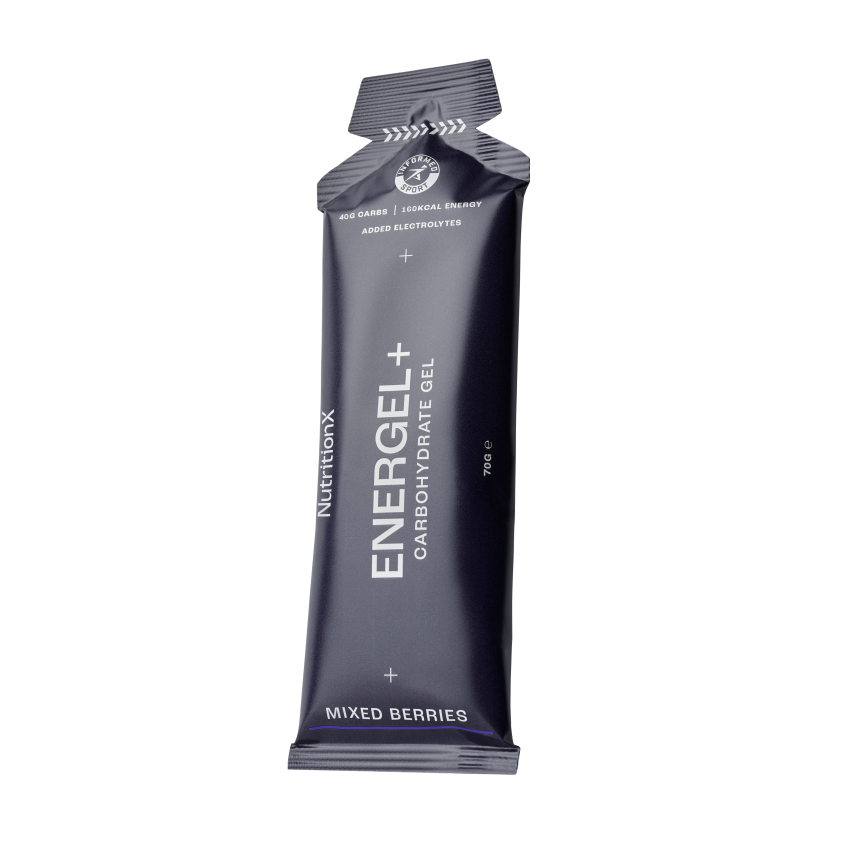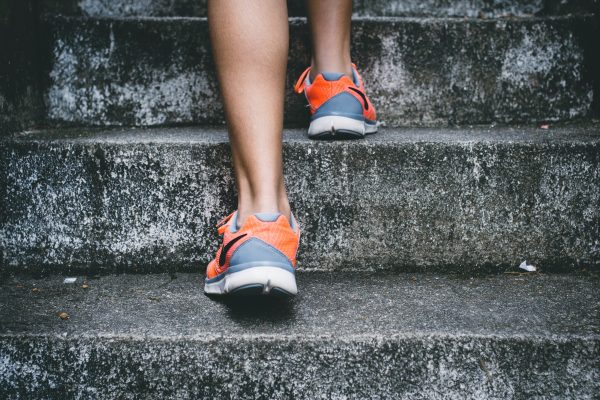We know that dehydration limits exercise performance, but why?
The human body is made up of 60% water and this is vital for enduring the correct function of all of its physiological functions. Water aids countless processes in the body, including the transport of nutrients and oxygen to cells, the regulation of body temperature (thermoregulation), acting as a lubricant and shock absorber to protect joints and organs, supporting brain function, aiding digestion, removing waste products and assisting the metabolism to convert food into energy.
During exercise, the heart needs to work harder to pump the blood around the body to deliver oxygen to the working muscles. Water is a key constituent of blood and, as the body starts to sweat, water is released through the skin to cool itself down.
To replace water lost through sweat, we must drink water to stay hydrated. In simple terms, if we don’t drink enough water, we become dehydrated; placing extra stress on the heart, making it work twice as hard to do the same job. Blood becomes more concentrated and heart rate increases in order to pump blood around the body, but if the heart rate increases at a rate that’s too fast for the body to cope with, the brain tells the body to stop and we fatigue.
Environmental factors e.g. weather and altitude can strongly influence sweat production, too, and nutritional factors must also be considered as a factor in dehydration; with low carbohydrate and low sodium diets increasing water losses through increased urine production.
Arrive to Training Hydrated
One of the biggest mistakes any athlete can make is starting training in a dehydrated state. Being dehydrated by just 2% can negatively influence performance and, if you’re nearly at that point before you begin, there’s no doubt that you won’t get the most out of that session, especially if it’s hot. If you start off training hydrated, then you are more able to drink to thirst and maintain body weight.
However, it’s important to remember that drinking lots of water so close to training or during it will not compensate for lack of fluid intake throughout the rest of the day. In fact, you’re more likely to suffer with gut issues and need toilet breaks during training.
How to Stay Hydrated
- Drink 2-3L water per day (more for larger individuals) with an extra 0.5-1L to rehydrate during and after each hour of training
- During high intensity prolonged training, or if it’s very hot outside, then you may require an electrolyte drink like our Hydra+ replace lost salts as a result of high sweat rates
- Monitor your changes in body weight before and after training
- Rehydrate with water, Hydra+, Hydra 10 and/or milk



